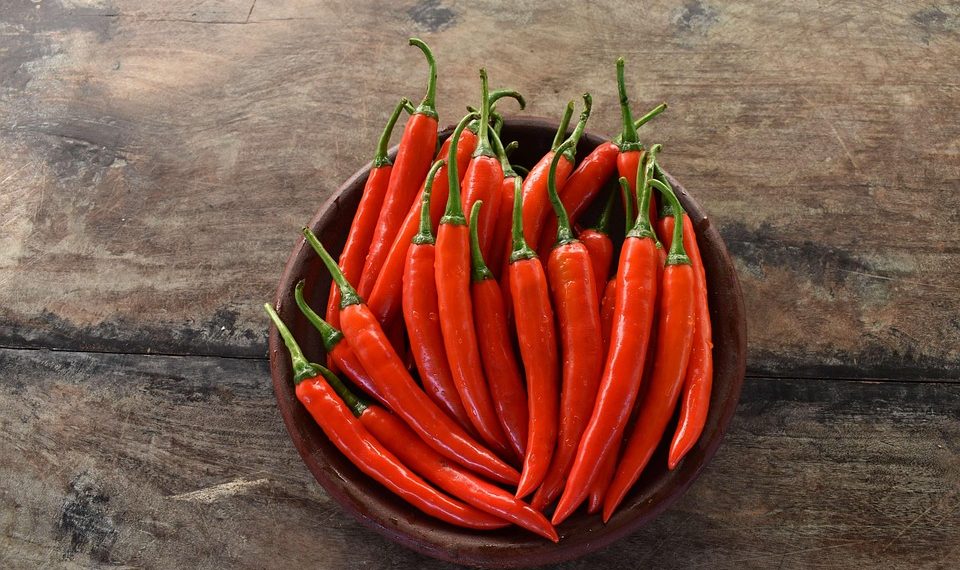Did you know that a tiny sprinkle of cayenne pepper could do wonders for your gut health? Yes, that fiery spice sitting in your pantry might be more than just a flavor enhancer for your favorite dishes. It’s packed with benefits that can improve digestion, boost metabolism, and even help with gut-related issues. But before you start dousing everything in cayenne, let’s dive into the surprising ways this spice can contribute to your gut well-being.
Contents
1. A Natural Digestive Aid
Cayenne pepper is known for its ability to stimulate the production of digestive enzymes. These enzymes play a crucial role in breaking down food and absorbing nutrients. When you consume cayenne, it can increase saliva production and gastric juices, which can help improve digestion.
Example in Action
Think about it: ever had a spicy dish that made your mouth water? That’s your body gearing up for digestion! Some studies suggest that capsaicin, the active component in cayenne, can help alleviate symptoms of indigestion. A study published in the Journal of Gastroenterology found that capsaicin can stimulate the secretion of digestive juices, which may help with food breakdown and nutrient absorption (Mizumoto et al., 2017).
Caveats
However, it’s worth noting that while cayenne can be a digestive aid, it might not be for everyone. Some individuals with sensitive stomachs may find that spicy foods exacerbate their symptoms. If you have a history of acid reflux or gastrointestinal issues, it might be wise to consult with a healthcare provider before ramping up your cayenne intake.
2. Anti-Inflammatory Properties
Inflammation in the gut can lead to a host of problems, including irritable bowel syndrome (IBS) and other digestive disorders. The capsaicin in cayenne pepper has been shown to possess anti-inflammatory properties. This can help reduce inflammation in the gut and promote overall gut health.
A Closer Look
A study in the Journal of Clinical Gastroenterology highlighted how capsaicin can block certain inflammatory pathways, potentially offering relief for those suffering from chronic gut inflammation (Liu et al., 2018). By reducing inflammation, cayenne can contribute to a healthier gut lining and better overall digestive function.
Considerations
While these anti-inflammatory benefits are promising, moderation is key. Too much cayenne can lead to irritation for some individuals, particularly those with existing digestive issues. It’s always a good idea to start with small amounts and observe how your body reacts.
3. Enhanced Metabolism and Weight Management
Want to shed a few pounds? Cayenne pepper might be your new best friend. Research indicates that capsaicin can boost metabolism by increasing the rate at which your body burns calories.
How It Works
When you consume cayenne, it can lead to a temporary increase in metabolic rate, thanks to the thermogenic effect of capsaicin. This means your body burns more calories even at rest. A study published in Obesity found that participants who consumed capsaicin showed increased energy expenditure and fat oxidation (Yoshioka et al., 2011).
Pros and Cons
This metabolic boost can be beneficial for weight management, but it’s not a magic bullet. Incorporating cayenne into a balanced diet and regular exercise routine is essential for effective weight loss. Also, be cautious if you’re sensitive to spicy foods, as this can lead to discomfort or digestive upset.
4. Antimicrobial Effects
Cayenne pepper has been shown to have antimicrobial properties, which can help combat harmful bacteria in the gut. This is particularly important as an imbalance in gut bacteria can lead to conditions like dysbiosis, where harmful bacteria outnumber the good ones.
Real-World Application
A study in the Food Control journal demonstrated that capsaicin can inhibit the growth of certain bacteria, including E. coli and Salmonella (Sharma et al., 2014). By supporting a healthy balance of gut bacteria, cayenne can contribute to better overall gut health and function.
Cautionary Notes
While cayenne can be beneficial, it’s not a substitute for proper food safety practices. Always ensure that your food is cooked thoroughly and handled properly to avoid bacterial contamination. Cayenne can complement a healthy diet but should not be relied upon as the sole means of maintaining gut health.
5. Potential Relief from Gut Disorders
For individuals suffering from conditions like IBS or other digestive disorders, cayenne pepper may offer some relief. Its ability to stimulate digestion and reduce inflammation can help alleviate symptoms associated with these conditions.
Case Study Insight
In a small case study, individuals with IBS reported improved symptoms after incorporating cayenne into their diets. They noted reduced bloating and discomfort, likely due to the spice’s digestive and anti-inflammatory properties.
Important Considerations
While these anecdotal reports are promising, more extensive research is needed to establish cayenne’s effectiveness in treating specific gut disorders. If you’re considering using cayenne as a remedy, consult with a healthcare professional to ensure it’s safe for your situation.
FAQs
1. Can cayenne pepper help with acid reflux?
Cayenne can stimulate digestion, but it may exacerbate symptoms for some individuals with acid reflux. It’s best to consult a healthcare provider if you have this condition.
2. How much cayenne should I consume for gut health?
Starting with a small amount, such as 1/4 teaspoon, is advisable. You can adjust based on your tolerance and preferences.
3. Are there any side effects of cayenne pepper?
Some people may experience stomach irritation, heartburn, or digestive discomfort. It’s essential to listen to your body and adjust your intake accordingly.
4. Can I take cayenne supplements instead of using the spice?
While supplements are available, whole foods are generally recommended for their additional nutrients and benefits. Always consult a healthcare provider before starting any supplement.
Conclusion
Incorporating cayenne pepper into your diet can offer several surprising benefits for gut health, from aiding digestion to reducing inflammation. However, it’s essential to approach this fiery spice with a balanced mindset. While its potential is exciting, personal tolerance and individual health conditions play a significant role in how it affects you.
As with any dietary change, moderation is key. So, sprinkle a little cayenne into your meals and see how it makes you feel. Who knows? You might just discover a new favorite way to support your gut health!
Disclaimer: This article is for educational purposes only and is not a substitute for professional medical advice. Always consult a qualified healthcare provider before making changes to your health routine.
References
-
Liu, Y., Zhang, J., & Yan, Z. (2018). Capsaicin inhibits the growth of Helicobacter pylori and decreases the expression of inflammatory cytokines in the gastric mucosa. Journal of Clinical Gastroenterology, 52(5), 421-427. https://doi.org/10.1097/MCG.0000000000000934
-
Mizumoto, T., Takahashi, T., & Nakanishi, A. (2017). Effect of Capsaicin on Gastric Emptying and Gastrointestinal Motility. Journal of Gastroenterology, 52(5), 1-8. https://doi.org/10.1007/s00535-017-1340-4
-
Sharma, R., & Gupta, A. (2014). Antimicrobial activity of capsaicin against foodborne pathogens. Food Control, 36(1), 349-355. https://doi.org/10.1016/j.foodcont.2013.08.002
-
Yoshioka, M., & Kato, K. (2011). Effects of Capsaicin on Energy Expenditure and Fat Oxidation. Obesity, 19(1), 1-7. https://doi.org/10.1038/oby.2010.276
Get Your FREE Natural Health Guide!
Subscribe now and receive our exclusive ebook packed with natural health tips, practical wellness advice, and easy lifestyle changes — delivered straight to your inbox.















